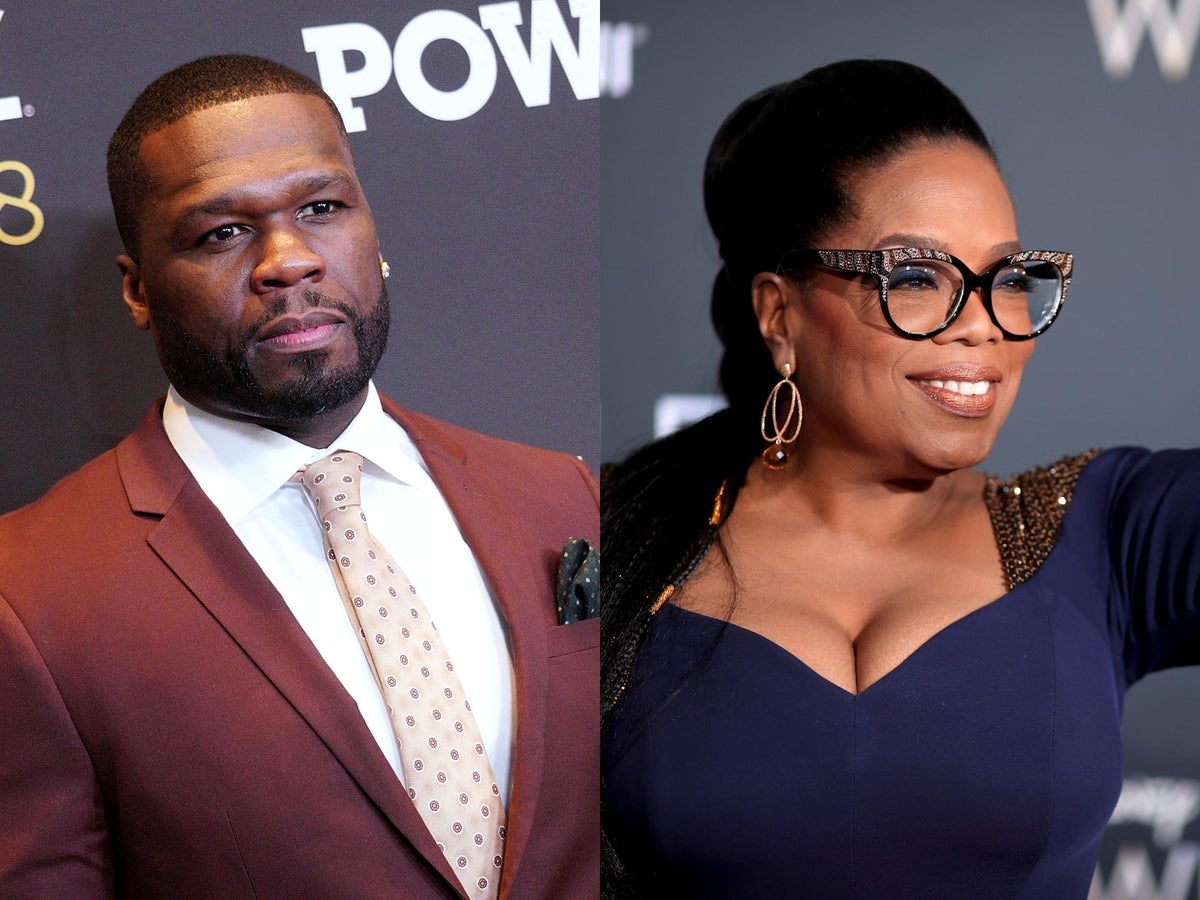In a controversial twist surrounding the film “The Color Purple,” rapper 50 Cent is publicly criticizing Steve Harvey for allegedly enabling Oprah Winfrey to blacklist actress Taraji P. Henson. The drama escalated after Henson spoke out about her negative experiences working on the film, including being underpaid and poorly treated on set. Oprah reportedly became upset with Taraji for expressing her grievances during the movie’s promotional tour, which some believe contributed to its lackluster box office performance.

50 Cent, known for his outspoken nature, has taken a stand for what he believes is right. He argues that Oprah’s actions toward Taraji mirror past incidents where she has allegedly undermined the careers of other Black actresses, notably Mo’Nique. The rapper claims to possess evidence of Oprah’s supposed vendetta against Taraji and has hinted at exposing information that could jeopardize her reputation in the industry.
The fallout from this situation appears to be impacting Taraji’s career negatively. Reports indicate that studios are withdrawing offers and projects from her, raising concerns that Oprah’s alleged blacklisting may be taking effect. While the entertainment industry has long been rife with issues of pay inequality, Taraji’s recent comments have sparked a broader conversation about the challenges faced by Black actresses, who often find themselves underpaid and overworked.
During a recent interview with SAG-AFTRA, Taraji expressed her frustration at not receiving a pay raise since her role in “Proud Mary,” describing the low offers she received for “The Color Purple” as insulting. Her candid remarks resonated with many, including fellow actresses like Viola Davis and Gabrielle Union, who have shared similar experiences of wage disparity and lack of recognition in the industry. This collective voice highlights the systemic issues that Black women face in Hollywood.

The tension between Taraji and Oprah is palpable, particularly during press appearances where Henson’s frustrations have been evident. An emotional moment occurred during an interview with Gail King, where Taraji broke down discussing her struggle with underpayment and how hard work does not equate to fair compensation. Observers noted King’s efforts to steer the conversation away from Oprah, suggesting a protective instinct toward her friend.
Behind the scenes, co-stars like Fantasia and Danielle Brooks have also revealed troubling treatment during production, including inadequate working conditions and a lack of basic amenities on set. These revelations contribute to the narrative of a toxic environment for Black actresses in Hollywood, further fueling the discourse around Taraji’s plight.
As 50 Cent continues to rally against Oprah’s alleged mistreatment of Taraji, the situation remains fluid. The potential fallout could have significant implications for both Henson’s career and Oprah’s standing in the industry, raising questions about accountability, representation, and the future of Black actresses in film. The events surrounding “The Color Purple” serve as a crucial moment for the conversation on equity and respect in Hollywood, emphasizing the urgent need for systemic change.